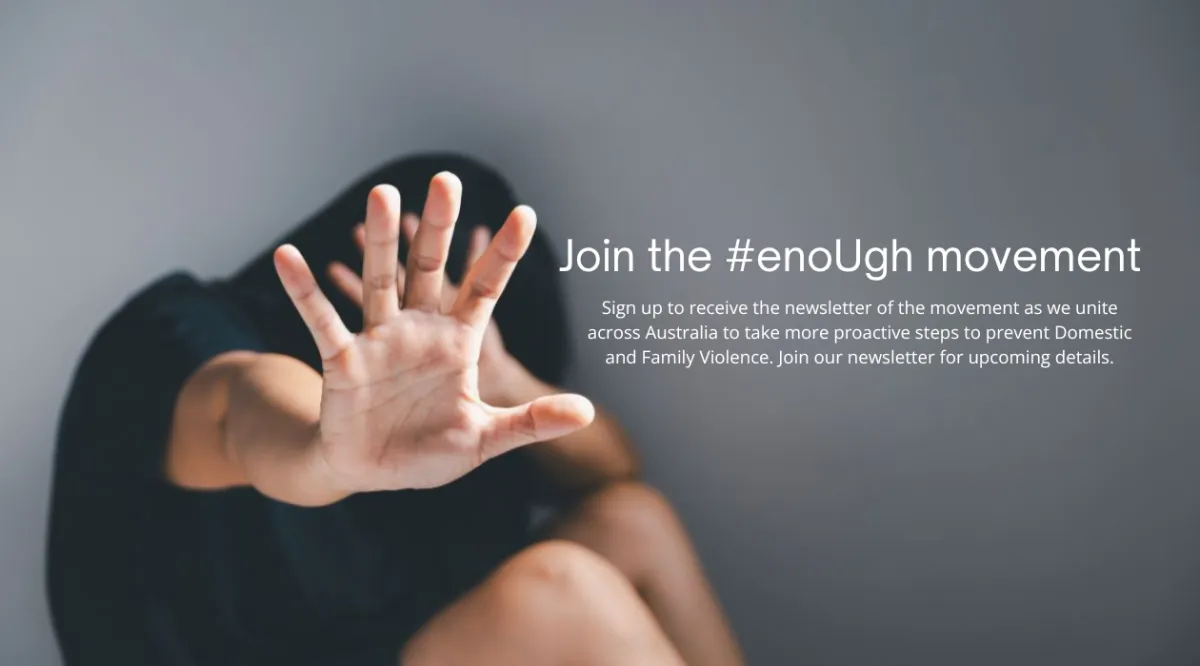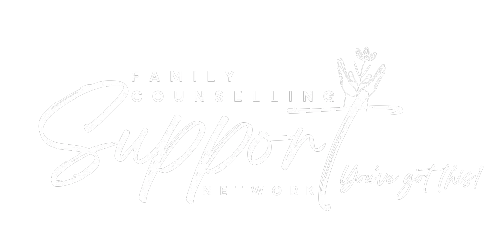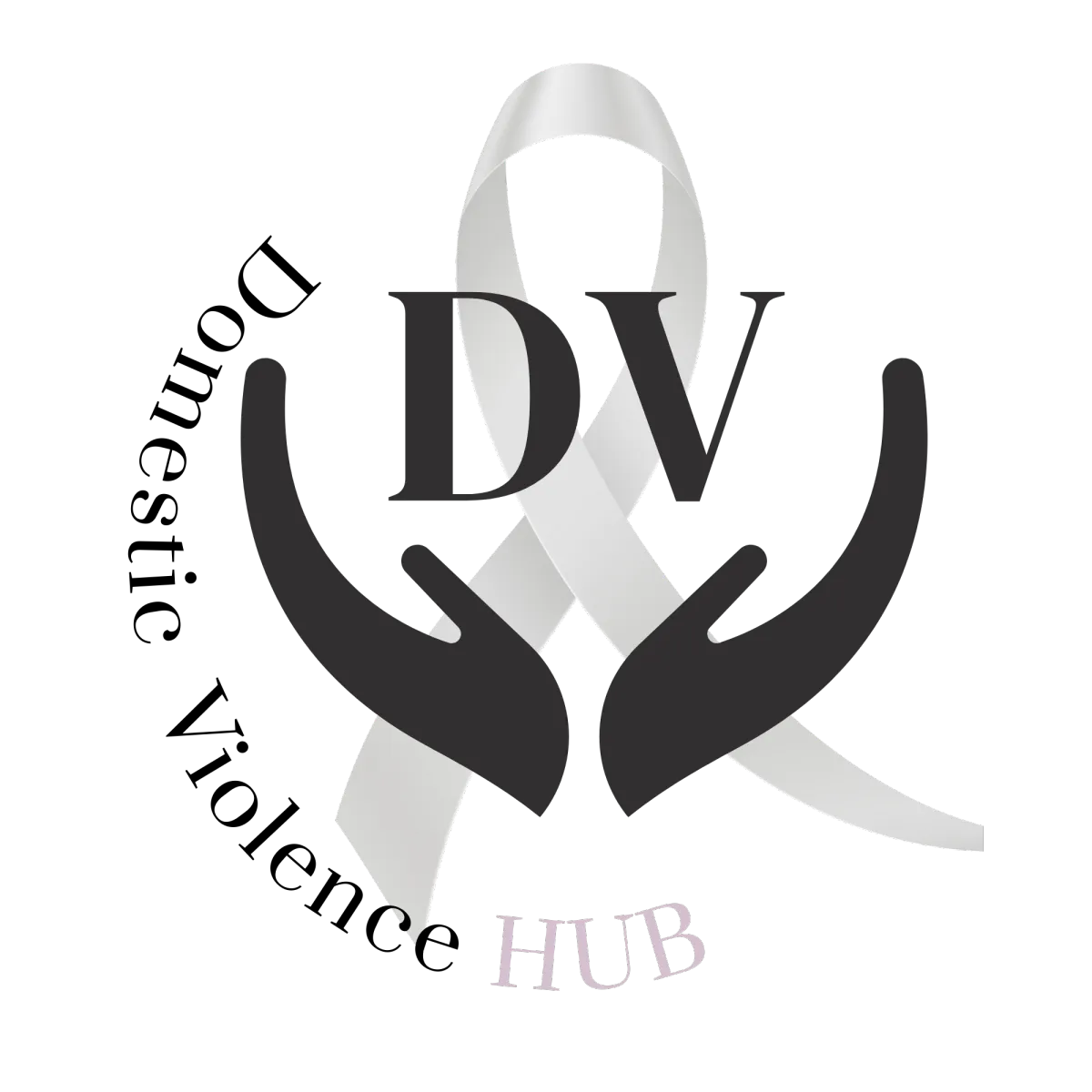Welcome to the Australian
DV Support Hub.🫂
(This website is currently under construction)
The DV Support Hub, provides FREE consolidated information on Australian domestic and family violence matters.
It is just one of the many hubs provided for free through Family Counselling Support Network, to Australians. If you, or are family member, are facing family and domestic violence or supporting someone who is, this hub provides information, resources and a guide on how to find support, keep safe, access resources and move forward safely with independence and greater confidence.
We endeavour to keep this information as up to date as possible.
This site is dedicated to the memory of all those who have lost their lives and the resilience of survivors.
If you have arrived at this hub because you or your loved one or friend is in need of support, we are extremely proud of you.
If you have arrived at this hub because you are seeking support to help find solutions to deal with your emotions, great move, we are also here for you to get the support you need.
Please know there is love and support for you. You've Got This.
There is never an excuse for abuse.
Meet our Ambassadors & Panel Members
Sabeel Burgess
We are very honoured to have Sabeel Burgess, CEO of Open Haven Ltd, and highly regarded domestic and family violence advocate, as one of our hub's ambassadors. A former high school teacher with 20 years of experience, including working with juvenile offenders, she successfully transformed Open Haven into a highly regarded post-crisis domestic and family violence NFP service provider, empowering survivors of domestic violence to realise their goals, offering long term recovery support services such as personalised 'restoration plans' to help survivors become supported and self-sufficient, driving lessons, job preparation, and legal referrals.

Kelly Gurski
With are incredibly honoured to welcome Sergeant Kelly Gurski as an ambassador for the DV hub. Kelly has devoted 30 years to policing, 14 as a domestic and family violence liaison officer. In 2024 she was awarded an Australian Police Medal for her dedication supporting victim-survivors of domestic and family violence and the impact of trauma, violence and abuse on their physical, mental and social wellbeing. Kelly is also an ardent supporter of the charity RizeUp, mother of six and a keen sportswoman who has featured on Adventure All Stars, fundraising for DV.

Susan Crain
Susan is a lawyer, with a background in psychology and counselling. She has worked for over 30 years supporting clients with family law and domestic violence matters. Susan has worked with many community groups including Caxton Legal Centre, Gold Coast Community Legal Centre, Act for Kids, Rize Up, and Open Haven, where she currently sits on the Board of Directors.
Susan is CEO and Founder of Separation Support Network and Family Counselling Support Network.

Aaron Schultz
CEO and Founder of The Outback Mind Foundation, a grass roots health promotion and education charity, focused on empowering regional men to take a proactive approach to looking after their mental health and to reduce the risk of men committing acts of domestic and family violence. Aaron's vision is to improve the emotional literacy of more regional men to help them live calm, conscious and connected lives.
The charities, Boiling Point documentary is a very powerful conversation starter shining light on the realities of domestic violence and male mental health, and real life stories of men who have turned their lives around. www.outbackmind.org.au

Mark Colwill
Counsellor
Mark is dedicated to helping you achieve your goals in overcoming the challenges you face during times of mental and emotional difficulty. Whether you are suffering with addiction, anxiety, depression, gambling habits or anger he works with you to take back control with professional counselling.


Domestic & Family Violence Hub
Finally the Support You Need All In One Place!
Emergency Support in Australia
PLEASE NOTE: IF YOU OR YOUR FAMILY ARE IN IMMEDIATE DANGER, CALL 000
FOR POLICE AND AMBULANCE HELP
With so many silo service providers offering assistance in Australia, we endeavour to explain their roles, how they interact and how to obtain their assistance for you and your family.
HELP IS AVAILABLE
🫂Emergency Contact Numbers and details of the service providers including 1800RESPECT (the 24 hour national sexual assault, family and domestic violence counselling line)
🫂How to access medical emergency support
🫂How to access mental health emergency support
🫂What if I need a translator or interpreter to get emergency help?
🫂Other emergency crisis support Nationally and State based
We endeavour to update these details on a regular basis as required but please immediately notify us if you believe there is any error in the detail or the service has discontinued.
What is Domestic and Family Violence?
🫂What amounts to Domestic and Family Violence? Checklists to help.
🫂Details of the new Australian laws relating to stalking and coercive control
🫂Explain the difference between domestic abuse, family violence and child abuse
🫂Who can become a victim?
🫂LGBTQ relationships and domestic and family violence
🫂Teen dating violence
🫂Technological/online abuse
Please note: the checklists are not exhaustive, to cover every scenario, but will assist you to reduce your risks.
What are the 'Red Flags' of DV?
(warning signs)
It’s not always easy to tell at the beginning of a relationship if it will become abusive. In fact, many people who are abusive may seem absolutely perfect on the surface — as if they are the dream partner — in the early stages of a relationship. Possessive and controlling behaviors don’t always appear overnight but rather emerge and intensify as the relationship grows. That’s why it’s important to know the red flags of abuse.
There are often a number of warning signs 'RED FLAGS' that a relationship is or will likely become abusive.
🫂What are the Red Flags to look out for in a new relationship?
🫂Education and programmes - for you, your children, schools and public
Reporting suspected child abuse
Child abuse can be a single incident or several incidents that take place over time. It may not involve family members.
Child abuse must be reported if a child has suffered significant harm, is suffering significant harm, or is at risk of suffering significant harm.
🫂What is child abuse? How does it differ from domestic and family violence?
🫂How to recognise potential child abuse
🫂What to do if you suspect child abuse
🫂Why you should report child abuse
🫂What to expect after a report is made
🫂Impact of abuse and domestic and family violence on children
How to help someone at risk of DV
SEE
TALK
OFFER SUPPORT
PREVENT
🫂How to help someone you think or know is affected by domestic and family violence
🫂How to verbally respond to someone experiencing domestic and family violence
🫂Key signs someone is potentially being abused
🫂Key signs someone may be an abuser
🫂Personal reflections from survivors
🫂Business support to help employers support employees
🫂Trauma and Counselling support
Safety Exit Plan
Whether you are considering leaving or have left, we provide guidance on preparing a safety exit plan in advance.
🫂Keeping your home safe
🫂How to prepare an immediate escape from the home
🫂What to consider and prepare as part of the exit safety plan
🫂Documents and evidence and packing your bag to take if safe to do so
🫂How to apply for an emergency Family Violence Restraining Order
Please note: the checklists are not exhaustive, to cover every scenario, but will assist you to reduce your risks.
Emergency Help with Accommodation
🫂How and where to access safe emergency housing and accommodation after leaving a harmful relationship?
🫂What are the emergency accommodation options?
🫂Am I eligible for emergency accommodation?
🫂Things to take and prepare
🫂Applying for longer term accommodation support
🫂Rent Assist and other government support
We endeavour to update these details on a regular basis as required but please immediately notify us if you believe there is any error in the detail or the service has discontinued.
Emergency Access to food and other key personal items
🫂How and where to access emergency food items
🫂Are we eligible for emergency access to food?
🫂How long will I be allowed to access emergency food and other personal items?
🫂How to access food and other key personal items after the initial emergency
We endeavour to update these details on a regular basis as required but please immediately notify us if you believe there is any error in the detail or the service has discontinued.
Emergency Access to financial assistance
🫂Am I eligible for financial assistance?
🫂What government financial assistance is available?
🫂How do I apply for financial assistance?
🫂Where do you get the forms from and how to complete the forms?
🫂What if I need help to complete the forms?
🫂What if I don't have Australian residency?
We endeavour to update these details on a regular basis as required but please immediately notify us if you believe there is any error in the detail or the service has discontinued.
DV Police & Legal Processes
There can be some confusion and concern regarding making a complaint, the process, the evidence, the protection and the legal process from beginning to end.
🫂What can I do if I am a victim of domestic abuse?
🫂What to expect if I make a report?
🫂Urgent versus non urgent applications for a protection order
🫂Understanding the documents and filing
🫂What are the timings of getting protection?
🫂Do I need legal help?
🫂Do I need to go to court?
🫂What if someone lies about DV? What are my rights if falsely accused?
🫂What happens after we get the protection order?
🫂What if they breach the protection order?
Evidence Gathering to prove the abuse
In order to support any claim for domestic or family violence and/or child abuse there needs to be credible evidence. It is important to record as much detail as possible (but ensuring you remain safe). The information you gather can potentially be used by policeas evidence.
We explain how to do this, what the police and courts require and what is legally able to be obtained and presented.
Longer term financial independence
🫂Credit scores and credit reports
🫂Obtaining a loan or refinancing
🫂Financial counselling
🫂Getting debt under control
🫂Career assistance
🫂Dealing with debt collectors
🫂Child support and other government assistance
🫂Financial course and resources
🫂Legal aid or community legal assistance
Co-parenting Challenges & helping the kids
Poor quality co-parenting relationships are commonly associated with negative effects for the victim/survivor and the children. Both divorce and violence-related concerns and experiences will influence cooperating relationships with the former partner.
We provide guidance on:
🫂Co-parenting when there are genuine fears for yours and/or the family safety
🫂How the courts look at 'best interests of the child' if there are safety concerns
🫂How to remain personally safe during co-parenting
🫂The appointment of an independent children's lawyers (ICL)
🫂Details about family reports
🫂Supervised access, handover and handover centres
🫂How to claim child support and maintenance and obtaining financial support.
🫂How, when and to whom to report safety concerns that have arisen
🫂Consequences for intentionally making false allegations about another person
🫂Drug and alcohol addictions and the courts view on parenting and testing
🫂Remaining safe with IT and tracking when co-parenting
🫂Use of parenting apps and documenting
Support for those committing abuse/violence
& strategies to effect greater change
🫂Am I abusive? Checklist.
🫂Anger management courses available
🫂Stress management and resilience courses
🫂Counselling support and programs
🫂Support networks and programs
The Tragic Statistics
🫂Affirmative consent laws
🫂What influences family, domestic and sexual violence? (aihw,gov,au)
🫂Education programmes
🫂Rites of Passage, Role Models and Reconnect programs
🫂Respect You, Respect Me.
🫂Changing the view on masculinity
🫂Pushing for change with child support enforcement
🫂White Ribbon Australia - global social movement
🫂Further reform needed
Reclaiming YOU!
Get back your life and find your happier place.
🫂Self care
🫂Women's Wellness Hub www.wellnessmenopausehub.com
🫂Men's Wellness Hub www.menwellnesshub.com.au
🫂Rural Support Hub - www.ruralsupporthub.com
🫂Counselling, Psychology, Trauma support
🫂Support networks
🫂Separation/Divorce support
🫂Career support
🫂Future relationships
🫂Breaking the cycle
Domestic & Family Violence Blogs

Mediation Guide
Separation and divorce can be difficult, stressful, emotional and expensive.
Even if you and your former partner are relatively amicable, you may still need assistance to work out how to disentangle and split your finances and property in a fair way and to determine what will work best for your children and your family going forward.
The Family Court expects that people involved in family law disputes will only make an application to the Court to have their matter heard when there is no other way possible to resolve their dispute. There is an expectation in other words that people will attempt to resolve their differences and find a way to settle through compromise, discussion and if required, dispute resolution, if it is safe to do so.
Mediation and Family Dispute Resolution (FDR) can help you work through your parenting and financial agreements, resolve dispute and find solutions that provide the best outcome for all parties involved. It can provide an affordable, less stressful and faster method for resolving disputes while still allowing you to have significant input into the process and the outcomes. When a matter goes to court, you lose a lot of this input and control around outcomes.
Below is an overview of the mediation process and some hints we commonly provide our client on how to best navigate the process.
When compared to the high levels of stress and onerous and unpredictable costs of litigation, mediation is a relatively simple and expensive way to resolve disputes, sort out the division of assets and liabiliteis and create a co-parenting plan that is in the best interests ultimately of the children, and workable for the parents.
In Australia, both government-funded and private centres offer a variety of options for mediation, depending on your individual circumstances.
The role of an independent mediator is to guide you to a resolution usually through a combination of joint and individual sessions. A mediator's role is to stay neutral and not 'take sides.' They make sure each party understandsthe issues at hand, is aware of each other's position, and will help find a fair and workable solution that is acceptable.
While the sessions can be held just with the separating couple and the mediator, under certain circumstances, if both parties agree, the parties lawyers, and/or a support person may attend. Children may under very limited circumstances be involved.
Some mediations may be held face to face, in person, or via zoom, or in certain circumstances, including where there has been domestic and family violence, 'shuttle mediation' can be used to keep the parties separate and in a safe space.
Communication in the course of dispute resolution are, except in certain circumstances, confidential and inadmissible in any court. The dispute resolution practitioner however may be required by law to report certain disclosures or risk.
What is Family Dispute Resolution (FDR)?
FDR is a special type of medication that is focussed on considering the needs of the children while hehlping you come to an agreement. It is often used to resolve parenting matters but property division can also be included in FDR.
It provides you with an opportunity to improve your relationship with the other party/ies and reach an agreement about legal, practical and co-parenting issues that are important to you. Because all parties are involved in reaching a resoution, it is chance to be heard properly in a more controlled and less overwhelming way compared to court, and improves usually the chances that the agreement will last into the future and reduce conflict for you and your children. You may also learn more effective ways to communicate with the other party througout the process to help you resolve any future issues/disputes.
Under the Australian Family Law system, with limited exceptions, it is compulsory for separated parents to go through the proess of FDR before applying to a Family Law Court for parenting orders.
Dispute Resolution may happen within the Court, with officers of the Court, such as a judicial registrar and court appointed child expert. The Court will make orders for these events and it is essential that you attend.
Dispute resolution may also take place externally to the Court. You can source Mediation and Family Dispute Resolution privately or through government funded services such as Legal Aid, Relationships Australia and other Family Relationship Centres.
If you are looking to source a private Mediator or FDRP, we can recommend one of our regularly appointed mediators to assist.
You should ensure that any person you engage to assist with FDR is registered as a Famiy DIspute Resolution Practitioner (FDPR) with the Commonwealth Attorney-General's Department, or if conducting arbitration, is accredited with AIFLAM, the Australian Institute of Family Law Arbitrators and Mediators.
Judicial Registrars and private mediators or FRDPs must provide a Certificate of Dispute Resolution at the conclusion of these events. There can be cost consequences for non-compliance with court orders for dispute resoluton.
What does Mediation and/or FDR cost?
Mediation has varying costs and can take anything from hours to days to complete, depending on the complexity of your situation and depending on whether financial and children issues are being considered.
Government-assisted FDR may be free or subsidised if you meet the eligibility criteria.
Fees are payable to mediators and dispute resolution practitioners in private practice.
If you have been ordered to undertake a post-separation parenting program, unless the order otherwise states, you will be required to pay for the costs of your attendance at that program.
In most cases, mediation or FDR is going to be much cheaper and faster, and a lot less stressful than battling it out in court.
Our Top Tips to Prepare for Mediation
Learn about the options available to you and what is best suited to your needs and budget.
Your FDR practitioner, lawyer or mediator will advise what documents you will be required to produce prior to, and on the day of, the mediation.
Prior to the mediation date, a complete understanding of your finances including assets, liabilities/debt, income, superannuation, parenting, child support, and other legal matters will greatly help the process. Get your documents well organised and labelled. We can assist you to prepare this list and the organisation.
When a court orders you to attend dispute resolution, orders will also be made about what documents are required to be completed exhanged and provided to the person conducting the dispute resolution. These may include for instance, any court documents such as applications, responses and affidavits, expert reports, any child impact report, confidential case summaries, and valuations.
Think about all the issues that you may want to consider including your parenting arrangements, financial and property matters before the mediation and consider what is important to you and why and what you hope to achive through mediation or FDR.
Try to keep an open mind and consider what is really motivating your priorities - is it emotionally based reasoning or is it based on what you genuinely believe is fair and in the children's best interests.
Be aware of the various costs involved in the types of mediation and FDR options available before you commit - mediator costs, lawyer costs, travel expenses, your time off work etc. Make phone calls to find out what costs are anticipated on an hourly/daily basis and any potential post mediation expense for example the costs of formalising your agreed terms of the mediation into a formal agreement which you may want to file in the Family Court to make enforceable.
Make sure you are actually available for the set mediation date and not running late. If there is any chance you will miss the date or the time, let the mediator and other party know well in advance to avoid financial consequences.
We know this can be very difficult to do, we hear you! This can be a highly emotional and confronting time which can make you feel overwhelmed and vulnerable. If is often a time in the separation/divorce process when we highly recommend that our clients reach out for additional emotional support and invest in their own self-care.
I know your head may be racing, but try to get a good nights sleep the night before mediation. We highly recommend you do not drink too much caffeine or consume other stimulants on the day or drink any alcohol throughout the day, you eat well so your sugar levels are ok, stay hydrated, take your medication as and when needed, make plans for the children after school as the mediation may go all day. You may plan to take a friend/support person if you have previously obtained the other sides consent to do this.
Ask for short breaks throughout the day to clear your head, visit the bathroom, calm down.
If you need an interpreter for the mediation, please make sure you let them know well in advance of the mediation day.
Be Aware of your Communication
Mediation is not the right opportunity or time to express your frustration, play games, be aggressive or point score.
If you can get your emotions in check and communicate effectively enough to convey your wishes, it can be an excellent way to resolve things and to help you and your children move on.
Try to stay focused on your objectives and achieving good outcomes for the children and yourself for the long term.
We always suggest to our clients that they should try to approach the mediation as a business meeting and to be as professional in their communication as possible throughout the mediation process - imagine they are talking and planning a meeting at work, asking for a pay rise with their employer or negotiating the purchase of a house. Poor behaviour such as shouting, swearing, accusing and blaming will likely derail the whole process, and make it difficult to arrive at any resolutions. Ignore the other parties potential outbursts as much as possible - don't bite! The mediator will usually help with this, so be guided by them (and your lawyer if you have one there with you.)
If you don't understand something that is explained to you, speak up and get clarification. You have the right to be heard and to ask. No question is too stupid. Don't let yourself be bullied.
If you feel unsafe, make sure you communicate this with the mediator in your initial intake consultation and provide them with any safety orders you may have.
This site is brought to you by Family Counselling Support Network
Book in with one of our professionals today



We are committed to protecting your personal information and respecting your privacy. This website uses cookies to analyze website traffic and optimise your website experience. By accepting our use of cookies, your data will be aggregated with all other user data.
DISCLAIMER: The material contained on this website is for general educational and information purposes only and is not a substitute for professional legal, financial, medical or psychological advice or care. While every care has been taken in the information provided, no legal responsibility or liability is accepted, warranted or implied by the authors or Family Counselling Support Network and any liability is hereby expressly disclaimed. For specific advice please contact us at [email protected]. All information contained on the website remains the intellectual property of Family Counselling Support Network and is for your personal educational use only. The information must not be reproduced or distributed without the express permission of Family Counselling Support Network.
Family Counselling Support Network acknowledges and respects the First Nations Custodians of the land where our offices stand, and where we work to help Australians. We pay respects to their Elders, past present and emerging, lore, customs and creation spirits. We recognise that these lands have always been places of ceremony, teaching, research and learning, and we acknowledge the important role Aboriginal and Torres Strait Islander peoples play in our community.
We are committed to providing an inclusive and accessible environment where people and communities of all identities and backgrounds are accepted, safe and celebrated.
Privacy Policy | Terms and Conditions

























